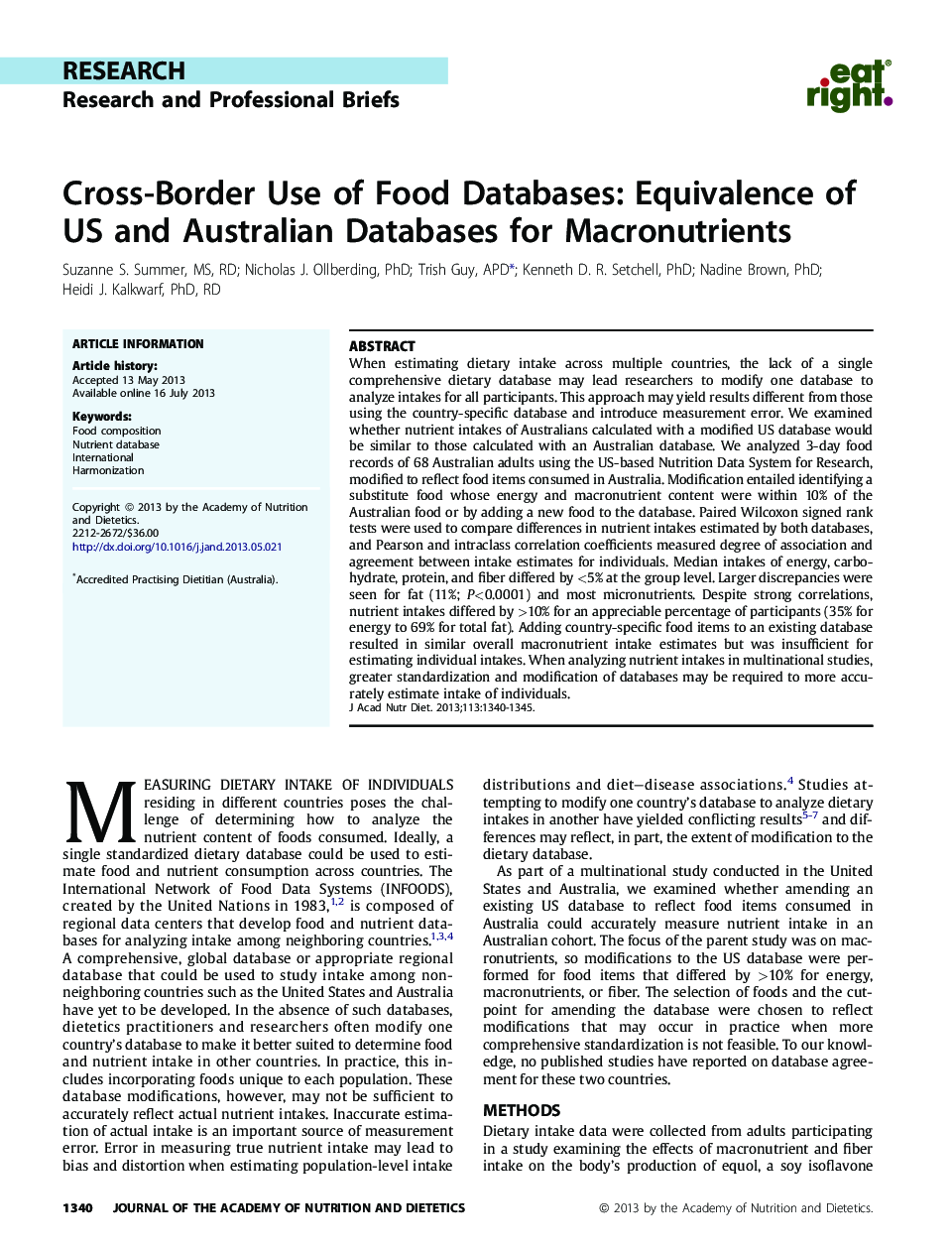| Article ID | Journal | Published Year | Pages | File Type |
|---|---|---|---|---|
| 2654361 | Journal of the Academy of Nutrition and Dietetics | 2013 | 6 Pages |
When estimating dietary intake across multiple countries, the lack of a single comprehensive dietary database may lead researchers to modify one database to analyze intakes for all participants. This approach may yield results different from those using the country-specific database and introduce measurement error. We examined whether nutrient intakes of Australians calculated with a modified US database would be similar to those calculated with an Australian database. We analyzed 3-day food records of 68 Australian adults using the US-based Nutrition Data System for Research, modified to reflect food items consumed in Australia. Modification entailed identifying a substitute food whose energy and macronutrient content were within 10% of the Australian food or by adding a new food to the database. Paired Wilcoxon signed rank tests were used to compare differences in nutrient intakes estimated by both databases, and Pearson and intraclass correlation coefficients measured degree of association and agreement between intake estimates for individuals. Median intakes of energy, carbohydrate, protein, and fiber differed by <5% at the group level. Larger discrepancies were seen for fat (11%; P<0.0001) and most micronutrients. Despite strong correlations, nutrient intakes differed by >10% for an appreciable percentage of participants (35% for energy to 69% for total fat). Adding country-specific food items to an existing database resulted in similar overall macronutrient intake estimates but was insufficient for estimating individual intakes. When analyzing nutrient intakes in multinational studies, greater standardization and modification of databases may be required to more accurately estimate intake of individuals.
